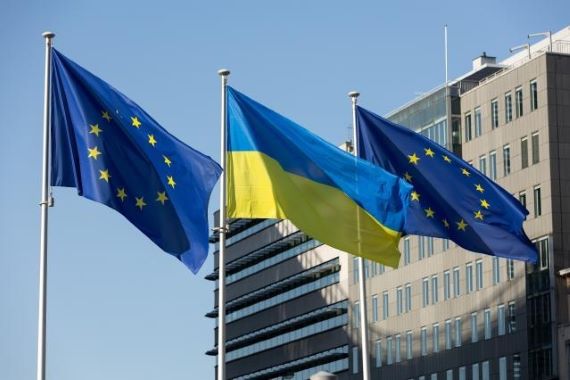Today, the European Council adopted the 15th sanctions package against Russia, targeting the shadow fleet and preventing sanctions circumvention. This package includes significant listings of individuals and entities in the Russian military-industrial complex and enhances the legal protection of EU Central Securities Depositories (EU CSDs).
For the first time, the EU has imposed comprehensive sanctions—such as travel bans and asset freezes—on various Chinese actors. These sanctions are crucial to the EU’s response to Russia’s military aggression in Ukraine, aiming to weaken Russia’s military capabilities, cut it off from advanced global markets, and limit its war financing.
The European Commission will monitor the enforcement of these sanctions, as evidence shows that Russia is attempting to circumvent them. EU Sanctions Envoy David O’Sullivan is engaging with third countries to address this issue. It has also identified Common High Priority sanctioned goods that require due diligence from businesses and that must not be re-exported to Russia. Additionally, a list of economically critical sanctioned goods within the EU has been created for heightened vigilance.
“Our sanctions have a clear objective – to weaken Russia’s economy and its ability to pursue its illegal aggression against Ukraine – and they are achieving that objective. With each new round of sanctions, we improve effectiveness and close gaps, and we will continue to do so, as part of our unwavering commitment to support Ukraine and its people”, Maria Luís Albuquerque, Commissioner for Financial Services and the Savings and Investments Union, stated.
Anti-circumvention measures
As Russia attempts to evade the Oil Price Cap, the EU is enhancing measures to prevent this. Today, the Council targeted 52 additional vessels from Russia’s shadow fleet, raising the total to 79. These non-EU vessels are now banned from accessing ports and receiving services due to their involvement in high-risk shipping practices, such as transporting Russian oil, facilitating arms deliveries, and stealing grain.
This strategy increases Russia’s costs and reduces the number of vessels available for carrying crude oil. It also addresses safety and environmental risks posed by ageing and underinsured ships. The EU will continue to monitor Russian oil trade and practices aimed at circumventing the price cap, focusing on compliance from G7 operators and shadow fleet activities.
Additional listings
Today’s package includes 84 new listings, targeting 54 individuals and 30 entities for actions undermining Ukraine’s integrity and sovereignty. These listings involve asset freezes and, for individuals, travel bans.
The focus is on Russian military companies producing aircraft parts, drones, and electronics, along with senior managers in the Russian energy sector, which generates significant revenue for the government.
The EU is also sanctioning the military unit responsible for the attack on the Okhmadyt Children’s Hospital in Kyiv, as well as individuals involved in child deportation and propaganda.
Notably, for the first time since the invasion began, the EU has imposed “fully-fledged listings” on seven Chinese individuals and entities connected to circumventing sanctions and supplying sensitive components to the Russian military. Additionally, two senior officials from North Korea have been included in today’s listings. It follows discussions at the October European Council and G7 meetings regarding third countries’ support for Russia’s aggression.
Trade
The package adds 32 companies to the list supporting Russia’s military in its war against Ukraine—20 from Russia, seven from China or Hong Kong, two from Serbia, and one each from Iran, India, and the UAE. They will be subject to stricter export restrictions on dual-use goods and advanced technology.
Protecting the interests of EU operators
Today’s measures prohibit the recognition or enforcement of certain Russian court rulings within the EU that grant Russian courts exclusive jurisdiction in disputes between Russian and EU companies. This ban protects EU companies from unlawful damage awards in Russia.
The package also extends existing exemptions for EU operators to divest from Russia, allowing companies more time to exit the market.
Financial sector
To address the increasing litigation and retaliatory actions in Russia that led to the seizure of EU Central Securities Depositories (CSDs) assets, today’s package introduces two key amendments: 1. Loss Recovery Derogation: This allows EU CSDs to request Member States to unfreeze cash balances, enabling them to meet their legal obligations to clients, and 2. No Liability Clause: This clarifies that EU CSDs are not liable to pay any compensation, including interest, to the Central Bank of Russia, except for contractually due interest.
These amendments aim to safeguard EU CSDs during challenging times.

